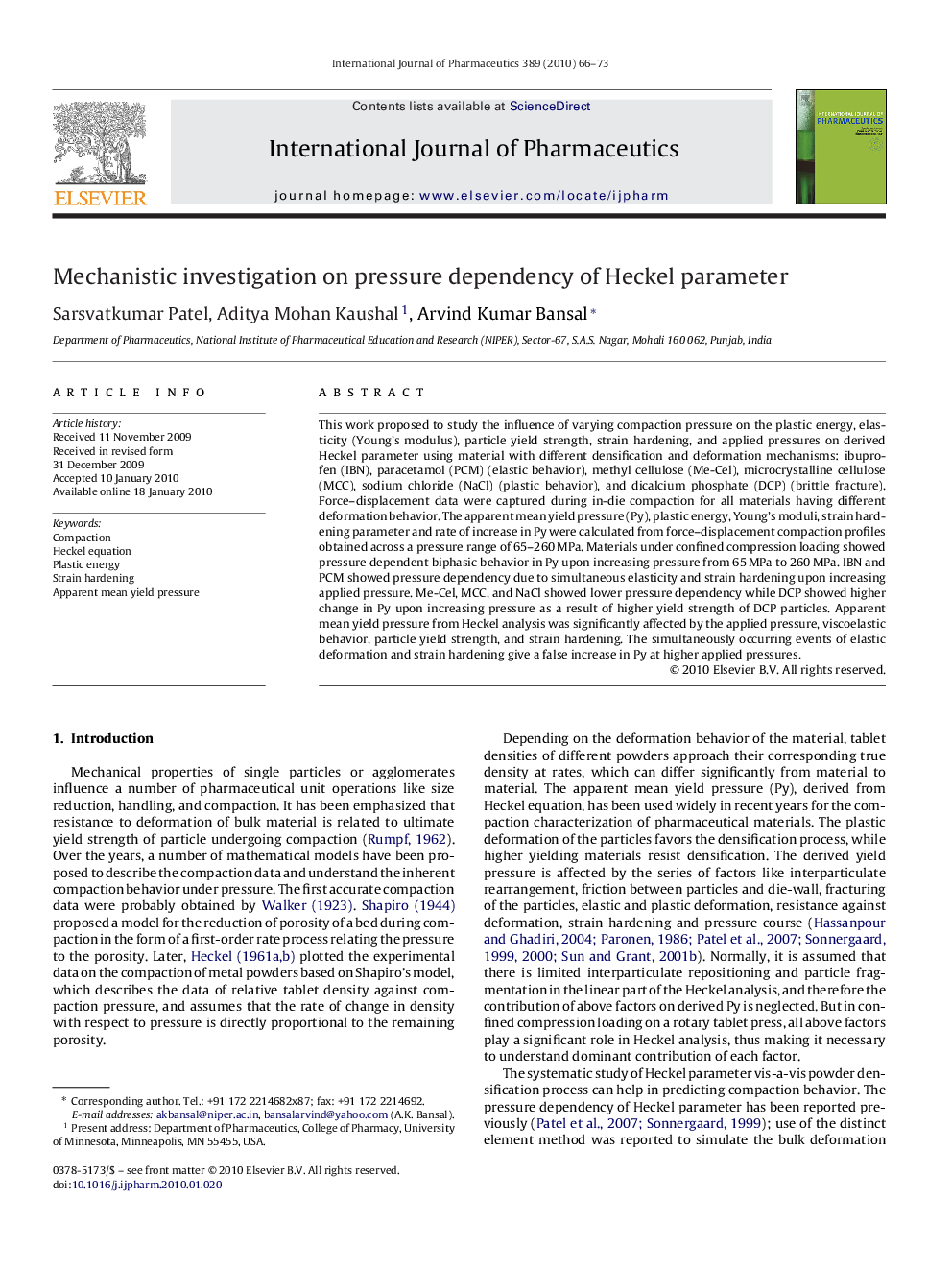| Article ID | Journal | Published Year | Pages | File Type |
|---|---|---|---|---|
| 2504210 | International Journal of Pharmaceutics | 2010 | 8 Pages |
This work proposed to study the influence of varying compaction pressure on the plastic energy, elasticity (Young's modulus), particle yield strength, strain hardening, and applied pressures on derived Heckel parameter using material with different densification and deformation mechanisms: ibuprofen (IBN), paracetamol (PCM) (elastic behavior), methyl cellulose (Me-Cel), microcrystalline cellulose (MCC), sodium chloride (NaCl) (plastic behavior), and dicalcium phosphate (DCP) (brittle fracture). Force–displacement data were captured during in-die compaction for all materials having different deformation behavior. The apparent mean yield pressure (Py), plastic energy, Young's moduli, strain hardening parameter and rate of increase in Py were calculated from force–displacement compaction profiles obtained across a pressure range of 65–260 MPa. Materials under confined compression loading showed pressure dependent biphasic behavior in Py upon increasing pressure from 65 MPa to 260 MPa. IBN and PCM showed pressure dependency due to simultaneous elasticity and strain hardening upon increasing applied pressure. Me-Cel, MCC, and NaCl showed lower pressure dependency while DCP showed higher change in Py upon increasing pressure as a result of higher yield strength of DCP particles. Apparent mean yield pressure from Heckel analysis was significantly affected by the applied pressure, viscoelastic behavior, particle yield strength, and strain hardening. The simultaneously occurring events of elastic deformation and strain hardening give a false increase in Py at higher applied pressures.
